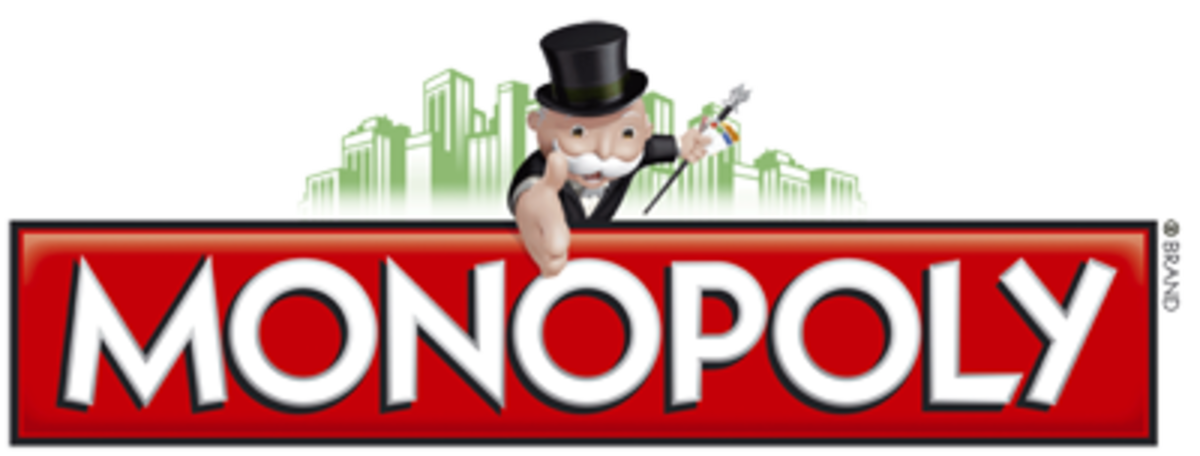Publish Your Book! Form Your Own Publishing Company and Keep More Money
Publishing Companies
I have been published through a major book publisher before, and let me tell you, dealing with publishing companies is a huge hassle. Editors want to change your carefully-crafted sentences, often without any justification whatsoever. Art directors want to change the formatting, or put in artwork to make the book sell, even if the art is totally irrelevant or detrimental to your subject. Even if the publishing company accepts your book, you're likely to get only pennies on each sale. And the time you spend on the phone or in meetings is unbelievable--people in publishing companies tend to treat the author's time as free, when each minute you are in consultation with them is a minute you cannot spend writing and earning money.
Fortunately, you can avoid all of the hassles of dealing with publishing companies, agents, the rejection letters, and the never-ending meetings by forming your own publishing company. With print-on-demand technology, forming your own company is easy, takes very little time and money, and you will make much more money because on the sale of each book you will receive the author's royalty, the publishing company's commission, AND the agent's commission. And the cost of publishing a book yourself with your own publishing company may be less than you think! However, forming your own publishing company is not for everyone, so you will want to consider this decision carefully and consult the appropriate professionals at each step of the way. There are many wonderful books that will help you to form your own publishing company, should you decide to do so!

Step One: Do Your Research
One advantage the publishing companies have is their research. They already know what sells. Or do they? Very few publishing companies make back the author's advance, and before you know it, your book is being remaindered or destroyed. So, to outperform the publishing companies, you will need to do your research.
An easy way to research is to find a book similar to the book you want to write, that fits with the material you have. How well did/does the book sell? In which format is it published (which is related to the cost of publishing a book)? What is the target market for the book? How well did similar books do?
Next, go to the library, and research periodicals pertaining to publishing. You can find a comprehensive list of periodicals in Ulrich's Periodicals Directory. Not only are you looking for trade journals, but you also want to look at advertising for the book similar to what you want to sell. How much advertising was purchased, and in which periodicals, and how much did it cost? Then figure in the number of books your target book sold, and the advertising cost per book. Was the advertising effective?
How does all that relate to the sales vs. the cost of publishing a book? We'll find out!
Step Two: Forming Your Company
Now is the time to consult with a business consultant on the structure for your company. If you are a one-person company, it may be best to stick with a sole proprietorship, as this requires the least cost and paperwork. Otherwise, a business consultant (not a coach) will advise you on how to structure your business. Typically a business consultant will either have a CPA license or have a partner who does. He or she should also work closely with a business attorney. You need a business attorney to handle contracts and disputes, should any arise. It is far better to have an attorney selected well in advance of when you need them.
The advantage of a CPA and an attorney is that they are required by law to keep everything you say about your business confidential. This step may be the most expensive cost of publishing a book; however, you will be able to use this for any other books you publish, and of course, these costs of publishing a book are fully tax-deductible as a business expense.
Marketing Your Book
- the backroom at dehanna.com
I posted a few links to sites (that have even more links) featuring a wealth of information in regards to promoting and selling your work so that you can get going in the right direction with your promotion this year.
Step Three: Planning Your Marketing
Based on your research, you will have a good idea of what makes a successful marketing campaign and your target market. If you are starting your own publishing company, you will need at the minimum a website listing books available. This can be just one book to start, and you can add books as you write them. You can even start with a website for each book, and later link them to your publishing company's website.
Now is the time to get in touch with an advertising or marketing professional. They will typically offer copywriting services and graphic design, as well as a marketing strategy. This may seem like a big expense, but small tweaks in wording or design can add up to thousands of dollars in sales--so don't begrudge them the cost of their services; it's just one of the costs of publishing a book. Your increased sales will more than make up for the fees you spend, and again, these services are fully tax-deductible.
You will also need to plan your book launch, and it's a good idea to plan local speaking engagements. Listen to authors being interviewed about books similar to yours, and make up questions and answers and rehearse them. Prepare 5-minute, 10-minute, 15-minute, 20-minute, and 30-minute talks and be prepared to allow question-and-answer sessions. When you book an appearance, don't forget to ask to be reimbursed for travel expenses!
Resources for Marketing Your Book


Step Four: Write the Book
Yes, that's right. You should have done all those other steps before you finish your book, because as soon as you finish, you will be almost ready to launch, and all these steps take time. In addition, you do not want to waste your time writing a book which will turn out not to sell!
Once you have identified the format, style and content of your target book, you should model your book after your target book. Your written content and artwork, of course, should be your own, but you can learn the lessons of formatting and layout from successful authors, instead of floundering and making costly mistakes.
Step Five: Post-Production
This is the time to turn over your work to someone else. You need someone else to proofread your book. Don't have your friends or family do it, although their opinions may be valuable. However, when it comes to spelling, grammar, and context, you need someone who doesn't pay their bills if they don't find your mistakes. Be sure that the person you hire for this checks for context errors and factual errors (such as a mistyped date or name). Pssst--remember that business attorney? You will need a contract with your proofreader, including a confidentiality clause.
If you have artwork for your book, you will need a consultant to help with layout and colour matching. Again, hire a professional, because proper artwork can make or break a book, and again, sign a contract (if they offer you a contract, have your business attorney look over it). Remember that these costs of publishing a book are fully tax-deductible, so keep good records!
Step Six: Ready for Publication!
Now that you are ready, and armed with all the information and your book, it's time to get into the business of actually publishing. Because you have formed your own company, you can skip the middleman such as Lulu, Cafepress, Xlibris, or the other dozens of print-on-demand companies, and go right to the company they use to handle their actual printing and shipping. This is usually Lightning Source, and the advantage is that you get the middleman's profit, too! It is more work, and you will have to be pretty hands-on, but even a beginner can publish through Lightning Source if they have done enough advance preparation.
The benefit of Lightning Source is that as part of their service they will list your book on Amazon.com, and list your book on their wholesale list at Ingram's and Baker & Taylor, as being available to bookstores (both large chains such as Barnes and Noble, and independent bookstores), with a return policy, just as if your company were a large publishing firm. The cost of publishing a book with Lightning Source is minimal compared with Lulu.com, CafePress.com, Xlibris, and the other middlemen print on demand companies.
Traditional Publishing for Small Publishers
If you want to form your own publishing company, but don't want the limitations of print-on-demand, you still have options open to you. The best option is to develop a relationship with a printer or print broker.
What is a print broker? This is a company that deals with wholesale publishers--the ones who are printing the books for the large publishing companies. And because they do such large print runs, they have specialized machines, one of which may be just what you need for your book. Every second a wholesale printer's machines are not running, they lose money, and so they will often bid jobs in slack times just above, or sometimes even below their cost, on the theory that losing a little money is better than losing a lot of money. A print broker can take advantage of their slack times and receive bids from numerous wholesale printers, and then pass the savings on to you. This greatly reduces the cost of publishing a book.
If you have a traditional printer nearby, this may also be a good company to develop relationships with. Often if they think you will be a good customer, they will give you excellent rates (my local print shop prints black and white for three cents per page--a steal!).
Is this too much work?
If you're not ready to form your own publishing company (although I recommend it, because it will be easier to publish subsequent books, and you can publish books for your friends and keep a commission on the sales), the second-best option is to publish through a middleman company. However, just as in any field, there are many middleman print-on-demand companies that are less than ethical or honest, and you must be very careful not to get cheated. Compare their services carefully, and it is best to order a book from them to see if it is the quality product you want your readers to have.
Remember, if you form your own company, you are responsible for all the marketing and promotion. If you are not prepared to run a business, including all the accounting, sales tax collection and reporting, writing press releases, giving interviews, and everything else that goes into owning a business, you will be better off going through a middleman--but choose your print-on-demand company very carefully.
Print-on-Demand Publishing Companies
- Comparison Chart of Print-on-Demand Companies
This sixteen-page comparison chart (pdf file) lists details of more than ninety print-on-demand companies.
Amazon CreateSource
Amazon has recently introduced AmazonEncore. Books that have been published through Amazon CreateSource that sell a certain number of copies and have good customer reviews may be picked up by Amazon's newest publishing arm, AmazonEncore. Barnes and Noble, Amazon's chief rival, does list AmazonEncore books on its website for sale, and may, in some cases, order physical copies of the book to be kept in bookstores. The cost of publishing a book through Amazon is very low.
How a Self-Published Book Became a WorldWide Bestseller
Amazingly, Shed Simove's story of how he got his self-published book (using a traditional printer) to the # 44 spot on Amazon is entertaining and enlightening. We all have lessons to learn from this example and it's well worth while to take the time to read this article if you are thinking of publishing your own book. It has since been taken down from the original site, but you can find it here: https://web.archive.org/web/20130902024515/http://realbusiness.co.uk/article/21388-how-i-got-a-blank-book-to-the-top-of-the-amazon-charts
A Few Final Words
Regardless of whether you go with a middleman POD company, form your own POD company, or form a traditional print company by creating a relationship with a print broker, remember that good research and marketing are the key to good book sales. If you go with a middleman print on demand company, carefully consider what you are getting into and compare the services they offer.
Best of luck with your book!
This article is accurate and true to the best of the author’s knowledge. Content is for informational or entertainment purposes only and does not substitute for personal counsel or professional advice in business, financial, legal, or technical matters.
© 2010 classicalgeek








